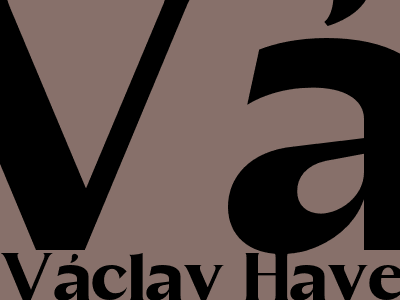Vaclav Havel: A Life Dedicated to Freedom, Human Rights, and Democratic Values
Vaclav Havel's Early Life and Education
Born on October 5, 1936, in Prague, Czechoslovakia, Vaclav Havel was the son of a wealthy family with a long history of involvement in politics and culture. His father, Vaclav Havel Sr., was a prominent journalist and diplomat, while his mother, Bozena Vavrova, was an actress. Havel attended primary and secondary school in Prague, where he developed a keen interest in literature, philosophy, and theater.
Despite his family's privileged background, Havel's childhood was marked by political turmoil and upheaval. Czechoslovakia had been occupied by Nazi Germany during World War II, and after the war, it became a satellite state of the Soviet Union. Havel's father was imprisoned by the communist regime, and the family's property was confiscated.
Havel's Literary and Theatrical Career
Despite the political challenges he faced, Havel pursued his interests in literature and theater. He studied drama at the Academy of Performing Arts in Prague and graduated in 1960. After graduation, he worked as a stagehand and later as a dramaturge at various theaters in Prague.
Havel's first play, "The Garden Party," was banned by the communist authorities in 1963. However, he continued to write and stage plays that criticized the totalitarian regime and advocated for freedom and human rights. His plays were often performed in small, unofficial venues known as "samizdat" theaters, which were outside the control of the communist censorship.
Havel's Political Activism and Imprisonment
In the 1970s, Havel became increasingly involved in political activism. He was a co-founder of Charter 77, a human rights movement that advocated for the implementation of the Helsinki Accords in Czechoslovakia. Charter 77 called for the respect of civil and political rights, including freedom of speech, assembly, and religion.
Havel's political activities led to his arrest and imprisonment by the communist authorities on several occasions. He was first arrested in 1977 and sentenced to four and a half years in prison. During his imprisonment, he wrote several important essays and letters, including "The Power of the Powerless," which became a manifesto for the nonviolent resistance movement in Czechoslovakia.
Havel's Presidency and the Velvet Revolution
In November 1989, the Velvet Revolution, a nonviolent uprising against communist rule, swept across Czechoslovakia. Havel was released from prison and became the leader of the Civic Forum, a coalition of opposition groups. He was elected president of Czechoslovakia by the Federal Assembly on December 29, 1989.
As president, Havel worked to dismantle the communist regime and establish a democratic society. He oversaw the transition to a market economy, the withdrawal of Soviet troops from Czechoslovakia, and the peaceful division of Czechoslovakia into two independent states: the Czech Republic and Slovakia.
Havel's International Legacy and Impact
Havel's presidency marked a turning point in the history of Czechoslovakia and Eastern Europe. He became a symbol of the peaceful transition from communism to democracy and inspired people around the world. He was a vocal advocate for human rights and democratic values, and he played a key role in the development of the international human rights movement.
Havel received numerous awards and accolades for his work, including the Presidential Medal of Freedom from the United States and the Nobel Peace Prize in 1991. He continued to write and speak out on issues of democracy, human rights, and the importance of civil society.
Havel's Death and Legacy
Vaclav Havel died on December 18, 2011, at the age of 75. He is remembered as one of the most important figures of the 20th century, a symbol of freedom, democracy, and human rights. His legacy continues to inspire people around the world who are fighting for their own freedom and dignity.

Comments